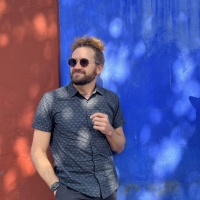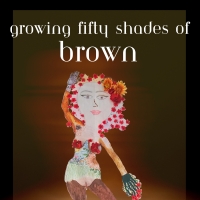CSU WGS Programs Call for Reinstatement of SSU WGS. Our department in support and solidarity of Sonoma State University WGS
Dear CSU Chancellor Garcia, Governor Newsom, members of the California State Legislature, SSU Interim President Cutrer, and SSU Provost Moranski,
On behalf of the faculty in our departments, we write to express our unwavering support for Sonoma State University's Women’s and Gender Studies Department. The news of its closure amidst the university's budget deficit is both alarming and disheartening. WGS has been an invaluable asset to the university’s mission, its students, and the broader community. We call upon the leadership of SSU, the CSU, and the state government to reinstate the department, protect WGS across the CSU, and invest statewide in women’s and gender studies.
SSU’s loss of WGS would be a significant blow to the university's commitment to inclusion, diversity, and academic excellence. It would impede SSU’s mission of preparing students for meaningful citizenship in a complex world. Since its establishment in 1970 as one of the first Women’s Studies programs in the country, the department has provided a critical space for the exploration and understanding of gender, intersectional feminist perspectives, and interdisciplinary methods. It has fostered a community where diverse voices and experiences are valued and has equipped students with the tools to engage in meaningful social change and a wide variety of careers.
Over the years, the department has played a crucial role in supporting and retaining marginalized students, including LGBTQ+ and BIPOC students, women, and survivors of violence and trauma. The faculty, comprising experts in these areas, are dedicated to creating a supportive and transformative learning environment. Their commitment to representation and inclusivity is essential for the success and well-being of these students. As we know from our own campuses and from the testimonials of SSU’s WGS students and alumni, WGS programs and departments are often the classes and spaces that retain those who would otherwise leave college. WGS faculty do this by drawing on an intersectional feminist legacy of seeing our students in their full humanity, supporting them through their struggles with cultural competency and compassion, and fueling their ambitions by empowering them to envision and join the building of a more just world through the praxis they acquire in our classrooms and communities. SSU’s WGS department and Queer Studies minor program are exemplary in this regard. The university will lose many students that would otherwise have been retained and thrived if it eliminates WGS and its highly skilled faculty.
A small department cannot be measured solely in its majors and minors. The WGS department has also served over 15,000 General Education students since its official founding in 2001. As an example, the department’s two lecture series, the fall Gender, Race, and Justice Lecture Series and the spring Queer Studies Lecture Series, run every academic year as both General Education courses and all-campus programming. These enrich the campus community in substantial ways, connecting SSU’s students to local and national organizers, scholars, and artists. Students who take WGS GE courses and attend its rich programming go out into our communities with the tools and knowledge that foster justice-focused empathy, curiosity, and accountability. We know from our own campuses that for many General Education students, the coursework they take in WGS is some of the most transformative of their college years. It often deeply informs the studies they pursue in their majors as well as their career paths.
In addition, research demonstrates that students who earn WGS degrees are profoundly impactful in their communities and have a wide range of career prospects. They are well-prepared to succeed in the current workforce, especially in various “public sector occupations” that are projected for growth over the next decade. In particular, given WGS emphases on interdisciplinarity, intersectionality, critical thinking, and self-reflection, an undergraduate degree in WGS provides its graduates with “interpersonal skills, higher-order cognitive skills, and systems skills” that are increasingly in demand from employers. When paired with the frequent use of high-impact practices in WGS teaching and learning (e.g., peer-to-peer teaching, internships, and student research), WGS creates significant workforce opportunities for its graduates. By eliminating the department, major, and minors, SSU will be foreclosing on vital occupational paths and opportunities for continuing and future Sonoma State students (Bakhski et al., “The Future of Skills: Employment in 2030,” 2017; Radeloff and Berger, “Women, Gender and Sexuality Studies: A Degree and Perspective for ‘Essential Workers’ in the 21st Century,” 2020).
Broad-based market study metrics that are often used by consultants in evaluating various degrees for their workforce readiness miss these key realities because they fundamentally do not consider what WGS actually does generally–and what SSU’s WGS does specifically–in training students for impactful careers and social engagement beyond their graduation. In making any valuation of the worth of a WGS degree to SSU, we urge you to consider the WGS field-specific research on career readiness and pathways. Take a closer look at SSU’s WGS major requirements related to career preparation. In addition to its internship requirement, its Careers in WGS course networks current students with alumni across many fields. Both the internship and the course help students translate their classroom-based learning into active workforce skills. We direct you, also, to the qualitative evidence within the many letters you are receiving from SSU WGS alumni.
Even if the elimination of WGS is being justified for budgetary reasons, the effect of SSU abandoning WGS and LGBTQ Studies will be to place the CSU in alliance with states where legislatures are targeting the elimination of interdisciplinary programs centered in understanding social difference. In so doing, Sonoma State’s actions are, in effect, contributing to a chilling culture of banning education that equips our students to center race, gender and sexuality in grappling with complex and changing dynamics of marginalization, belonging, and justice in our communities, our state, the nation, and beyond.
Sonoma State’s elimination of WGS means that the entire CSU system will be contributing to the federal government’s attempts to shut down equity and diversity programs, erode trans existence, and permanently take away women’s fundamental rights. While WGS departments are always timely and crucial, their importance in this moment cannot be overstated, given federal and global push toward anti-trans policies and restrictions to reproductive freedom and bodily autonomy. Needless to say, this closure will also deprive future students of education on these vital issues, prevent them from engaging critically with the values that are currently being touted, and have ripple effects as they go out into the wider world.
The partnership that the department has with SSU’s College of Education, Counseling, and Ethnic Studies is exceptional. WGS is integral to the university's collaborative efforts in training K-12 educators about LGBTQ+ curricular inclusion, as mandated by the state’s groundbreaking FAIR Education Act. Moreover, WGS faculty have been central to securing grants and developing programming currently underway to build up Asian American Studies at SSU. Both of these innovative programs should be continued as a way to attract and retain students, which will enhance the university’s reputation and contribute to the university's and the CSU’s enrollment and retention goals. Ending WGS and losing faculty with exceptional expertise and experience in these areas will cause much of this to grind to a halt at the very moment when it should be building on its momentum. WGS’s tenured faculty have been awarded SSU’s highest honors in both teaching and scholarship. They are highly accomplished as educators in intersectional feminist-centered pedagogies, interdisciplinary methodologies, and high-impact teaching practices. They are among the most beloved and respected members of SSU’s faculty due to their collaboration, collegiality, empathy, and vision. Moreover, the elimination of the whole WGS department, as well as other departments, is a clear attack on tenure, with implications for the entire CSU system and beyond.
WGS's impact extends beyond the classroom. The department has made significant contributions to the local community. Through its internship program, students have contributed over 30,000 volunteer hours to local organizations, helping the unhoused, survivors of violence, immigrant communities, LGBTQ+ youth, and women seeking healthcare. Many of the organizations WGS students engage with become future employers. Key Sonoma County organizations, such as Positive Images (for LGBTQ+ youth), Face to Face (HIV/AIDS prevention, harm reduction, and care), and Verity (sexual assault prevention, intervention, and healing) depend on WGS internships and hire its graduates into key roles. The loss of this department would be a loss for the entire community in ways that would have profound and long lasting harm.
For all of the above reasons, as chairs, directors, and faculty in the CSU’s WGS departments and programs, we urge the SSU administration to reconsider the decision to close the Women’s and Gender Studies Department.This would run directly counter to SSU’s own Strategic Plan 2025 in the areas of “Academic Excellence and Innovation” and “Transformative Impact” as well as its core values of “Diversity and Social Justice,” and “Connectivity and Community Engagement.” The social and economic costs of losing this department far outweigh any budgetary savings. We are also concerned with the collapsing and consolidation of ethnic studies departments also underway. Major funding cuts to ethnic studies combined with the full elimination of WGS and Queer Studies is a betrayal of the fundamental mission of the CSU and SSU’s core values.
With all of these points in mind, we urge you to reinstate the WGS Department at SSU, with its tenured faculty intact. The unique contributions of this department are not easily replicable or replaceable. Now, more than ever, we need the perspectives, critical approaches, and training that the Women’s and Gender Studies Department provides.
We further request that the Chancellor’s office develops and implements a policy to protect programs focusing on education which aims to reduce biases and promote equity, particularly during times of budget reductions. Women’s and Gender Studies is just such a program, as it helps on all campuses to move our system toward a more democratic future. Such a policy from the Chancellor would empower universities within the Cal State system to make more informed and holistic decisions regarding cost-cutting. We hope that what happened at Sonoma State never happens in any of the other CSUs. We understand that these are difficult times. However, it is during times of crisis that we show to the world who we are.
We also call upon the Governor and State Legislature to reinvest in the CSU as a vital engine of economic growth and as a bulwark against ignorance, intolerance, injustice, and anti-democratic forces in our nation. Any reinvestment should include specific earmarks for Women’s and Gender Studies and LGBTQ+ Studies.
Finally, we ask, specifically, that the Legislature explore an addendum to AB 1460 or the introduction of a similar bill in order to add a mandate for CSU students to complete, at minimum, one 3-unit course in women’s and gender studies and/or LGBTQ+ studies as an undergraduate requirement for graduation. As surely as California has come to embrace the ethnic studies requirement as vital to an inclusive and multicultural society, an understanding of gender, sexuality, and intersectional feminism and queer studies is also crucial. Californians deserve to be equipped with the tools through which to make our state more just, equitable, and caring. In this time when such core principles are under attack from so many directions, our state leaders can show the rest of the nation the way forward by enshrining best practices in public higher education.
Thank you for your attention to this urgent matter. Together, we can make a difference and ensure that Sonoma State University — and the CSU system — continue to be at the forefront of inclusive and transformative education.
In solidarity,
Anne Donadey, Professor
Interim Chair, Department of Women's, Gender, and Sexuality Studies
San Diego State University
adonadey@sdsu.edu
Tanya Bakhru, Professor
Program Coordinator, Women, Gender, and Sexuality Studies
San Jose State University
tanyabakhru@sjsu.edu
Sujatha Moni, Professor
Chair, Department of Women’s & Gender Studies
Sacramento State University
smoni@csus.edu
Priya Kandaswamy, Associate Professor
Interim Director, LGBTQ+ Studies Program
San Diego State University
pkandaswamy@sdsu.edu
David J Leonard, Professor
Chair, Department of Multicultural and Gender Studies
Chico State State University
dleonard@csuchico.edu
Lori Baralt, Professor
Chair, Department of Women’s, Gender and Sexuality Studies
California State University, Long Beach
lori.baralt@csulb.edu
Alejandra Marchevsky, Professor
Chair, Department of Women’s, Gender, and Sexuality Studies
California State University, Los Angeles
Amarche@calstatela.edu
Ramona j.j. Bell, Professor
Chair, Department of Critical Race, Gender & Sexuality Studies
Cal Poly, Humboldt
rb1337@humboldt.edu
Martha Kenney, Associate Professor
Chair, Women and Gender Studies
San Francisco State University
mkenney@sfsu.edu
Elizabeth Adan, Professor
Chair, Women’s, Gender & Queer Studies Department
Professor, Interdisciplinary Studies in the Liberal Arts Department
Cal Poly, San Luis Obispo
eadan@calpoly.edu
Jocelyn A. Pacleb, Professor
Chair, Ethnic and Women’s Studies Department
Cal Poly Pomona
japacleb@cpp.edu
Larissa M. Mercado-Lopez, Professor
Chair, Department, of Women’s, Gender & Sexuality Studies
California State University, Fresno
lmercadolopez@csufresno.edu
Patricia Drew, Professor
Chair, Human Development and Women’s Studies
California State University, East Bay
patricia.drew@csueastbay.edu
Susan Gordon Green, Professor
Department of Multicultural and Gender Studies
California State University Chico
sgreen@csuchico.edu
Veronica Anover, Professor
Chair, Women’s Gender and Sexuality Department
Professor, French and Spanish
California State University San Marcos
vanover@csusm.edu
Jenn Brandt, Professor
Chair, Department of Women’s Studies
California State University, Dominguez Hills
jbrandt@csudh.edu
Trystan T. Cotten, Professor
Director, Gender Studies Program
California State University, Stanislaus
tcotten@csustan.edu


